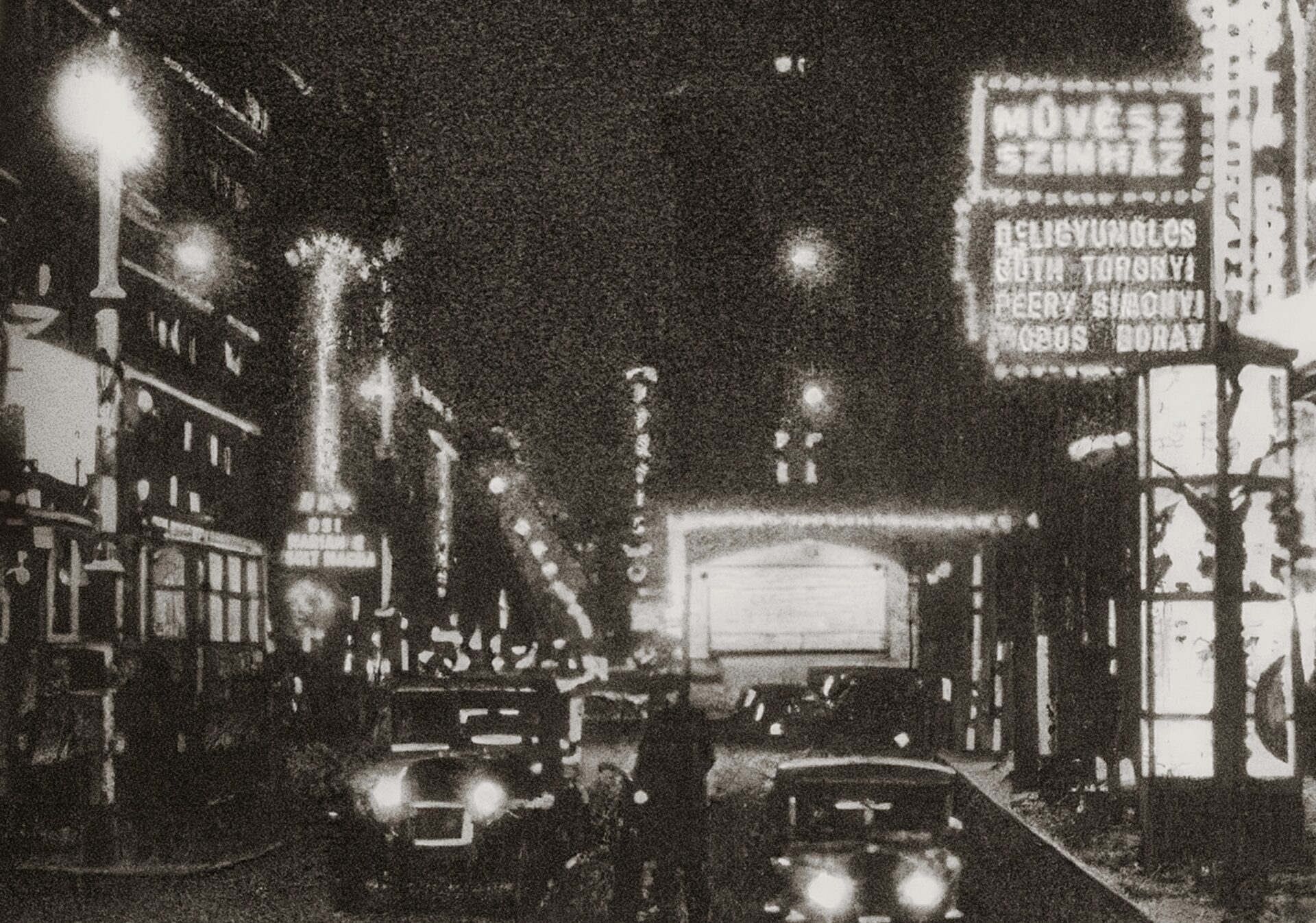Knowing what exactly is going on has never really been the point of appreciating Thomas Pynchon, and that’s something his protagonists share with us readers. Though in the case of Shadow Ticket’s Hicks McTaggart, other characters are often fond of highlighting that everyone knows a certain fact but Hicks himself. And that’s despite his line of trade as a private eye. Detective work, both professional and amateur, is of course not unfamiliar to Pynchon novels, with his last two books centering on folks similarly employed. But Hicks’ cheap suits are cut from a different cloth, their shading more nuanced than Bleeding Edge’s Jewish mother Maxine Turnow or Inherent Vice’s hippie with a heart of gold Doc Sportello.
Turnow’s leftist father would ground his children if he ever caught them watching a cop show. Sportello, too, goes on a rant about how “the tube is saturated with” them, trying to whitewash the police’s image into that of “regular guys”. Turnow gets drawn into the world of federal law enforcement during the course of her novel, but Sportello remains always on the wrong end of LAPD Lt. Detective Bigfoot Bjornsen’s appendages. And such establishment fists were exactly where Hicks McTaggart got his start, employed as muscle for the side of management against striking workers back in 1920s Wisconsin. That is until a mishap during a bout of headbusting causes Hicks to rethink his ways – all the while wondering what actually happened during that fracas.
Which brings us to a central theme of the novel, the world of ‘apports’ and ‘asports’, occult terms for things showing up or disappearing out of nowhere. A particularly Pynchonian idea. Perhaps most famously, it’s the fate of main character Tyrone Slothrop’s Hohner harmonica in Gravity’s Rainbow. Not so much its loss – falling down the Roseland Ballroom toilet in Roxbury, Massachusetts, in either 1938 or ’39 or ’40 depending on who you ask – but its reappearance five to seven years and almost 600 pages later in the German countryside, where he proceeds to soak it in a mountain stream overnight. Shortly after this, Slothrop himself will begin to disappear from GR’s narrative. But the comings and goings in Shadow Ticket are more immediate. And in true Pynchon fashion, they will centre on a truly tasteless lamp, highly sought after by collectors, whose materialisation connects a number of different plotlines.
True to form, the nature of asports and apports isn’t easy to pin down. Referred to as a deep mystery, are they just the mutable nature of things but at high velocity? No one has any real control over them – except the author, of course. And Pynchon’s obviously having some fun working the modern word ‘app’ into a nearly hundred year-old story (with asports also referred to as ‘ass’). But it also points to a larger concern with how fast the world is changing. As multiple characters point out, if Hicks does make it through this adventure and back home again, it won’t be to the same America he left, “to a country not yet gone Fascist”.
Given the current state of the country, this naturally seems like a comment on the United States today, though Hicks is thinking this in 1933 and, considering what his lifespan would be, implies that the United States was heading towards Fascism long before its present-day administration. This is of course a long-running theme in Pynchon’s work as a whole – how we’ve ended up where we are – as he has traced modern history, running from the robber baron times of Against The Day beginning at the 1893 Chicago World’s Fair, on through early 1900s European colonial history in V, Gravity’s Rainbow’s look at the Second World War, the psychedelic 60s with The Crying Of Lot 49 and Inherent Vice, Vineland’s taking a look back there as well along with its 1980s plotline, and Bleeding Edge taking things up until 2002. Shadow Ticket fills in the missing space in the late 1920’s/early 1930’s, showing us the rise of Fascism and Nazism, both in Europe and America, Jews beginning to be ‘disappeared’, the world becoming more and more connected, spelling trouble for the individual as it brings about wider rings of surveillance, and the nefarious workings of international cartels. These are reflected in the case of the music, too – always ubiquitous in Pynchon’s work – where it’s a battle between Americans incorporating more world rhythms and jazz voicings versus the rising tide of Fascist major triads. It’s no coincidence that the book is propelled towards the port of Fiume, with its own complicated multi-cultural history – not least of which the poet and Italian Fascist general Gabriele d’Annunzio’s post-World War I take over of the city, intent on making it a Free Republic of its own.
Back to apports and asports for a second. Such occult activity is hinted at in the book’s epigraph – “Supernatural, perhaps. Baloney … perhaps not” – taken from the Bela Lugosi film The Black Cat (1934). Pynchon is a big fan of the Hungarian actor, referring to him throughout his work, even giving him a cameo in Against The Day. Like the quotes before each section of Gravity’s Rainbow – one from Nazi and later NASA scientist Wernher von Braun, another attributed to disgraced US president Richard Nixon, as well as others regarding King Kong and The Wizard Of Oz – Shadow Ticket’s epigraph resonates more deeply with what’s in the text compared to some of his other books. The film begins on a train to Budapest, where lies Hick’s fate too, and also deals with father-daughter issues which will put the Pynchon fan in mind of Vineland and Paul Thomas Anderson’s loose adaptation of it, One Battle After Another.
For the concept of asses and apps can also apply to people, and it is the disappearance of cheese heiress Daphne Airmont that is the driving force behind the novel. Not that there necessarily needs to be a villain, but Pynchon paints Daphne’s father Bruno as one. Except that he’s not the classic Pynchon villain writ large with a capital V: Brock Vond, Scarsdale Vibe, Weissman (sound out its German pronunciation). We’re told Bruno’s a bad guy, but we don’t really see it. His ‘Cheese Fraud’ is supposed to be ‘geopolitical’ though again we’re not given much on this, and while we later learn that he has profited off of abandoned Jewish property, there is nothing linking him to the reason why it was abandoned in the first place. His familial connection with Daphne is full of the sarcasm-laden banter we get with everyone throughout the novel and nowhere near as intense or dramatic as Vineland’s Zoyd/Prairie/Brock scenario.
Regular visitors to Pynchonland will be familiar with the “ancient American Indian belief” that if you save someone’s life, you are responsible for them forever after. The novelist has mentioned it in at least his last three books. Notably, Foley Walker takes Scarsdale Vibe’s place in the American Civil War in Against The Day, thereby allowing a very vile man to live. In Bleeding Edge, Maxine refers to the concept as a curse. Vineland, too, was full of such Karmic Adjustments and Hicks in Shadow Ticket has a similar dubious connection to Ms. Airmont from years earlier, having got her out of a tricky situation. But here the idea is given more play, not just referred to in passing, but discussed on multiple occasions.
Hicks, attempting to ward off Fate, consistently argues that a routine rescue is not the same as life-saving. It’s an insistence that calls into question his responsibilities (which he might do well to take a deeper look at). Having started his career as management muscle, those in power are counting on him one day reverting to doing their violent bidding despite his present attempts at atonement. He’s repeatedly shown to be all-too-tied to those in control by doggedly sticking to his original case, nitpicking over the details, as others try to co-opt him into working for them. By accepting his original ticket to bring Daphne safely back to America but not responsibility for her afterwards, it becomes a matter of what power he’s willing to be accountable to: karmic or merely that of business. It’s those familiar Pynchonian questions of how much control do we really have over our lives? Just how many of those innumerable outside forces are we actually aware of? And what are they actually demanding?
While this is a trait common to most Pynchon characters, here it once again puts us in mind of Gravity’s Rainbow’s Slothrop. While Hicks isn’t anywhere near the level of control of having had his erections Pavlovianly linked to the plastic in V-2 rockets, Slothrop is one of his closest kin, being an American out searching for something in a post-war Europe. And Hicks, being somewhat of a meathead, is nowhere near as concerned as Slothrop is about the answers to those questions. Hicks may have reasons to be paranoid but neither he nor we are overwhelmed by them.
There are a good number of Gravity’s Rainbow allusions in Shadow Ticket to link the two books. The words ‘dreamland’ and ‘adenoid’ appear in back-to-back sentences on page 14, calling to mind GR’s fantasy of the giant adenoid attacking London. Hicks is native to Wisconsin and, yes, its city of Kenosha – as in the famous ‘Kenosha Kid’ sodium amytal sequence from GR – gets a mention late in the game. So late, in fact, that after so many other locales named, it feels like a payoff. While these might simply be Pynchon having fun, things like a rogue U-boat or a “spontaneous pig rescue” will be significant in the light of a comparison between the two books. In the case of the latter, it’s a very minor incident involving a very minor character but when Sándor Zsupka is “putting together a pig-customized helmet and goggles combination” to save Erzsébet the swine from becoming Christmas dinner we can’t help but recall Slothrop donning a pig costume of his own to avoid capture whilst on the lam “in the Zone” in Part III of Gravity’s Rainbow. The situation is reversed – and in a way that highlights the essential differences between these two main characters and their respective books. Slothrop was running away from the second World War and the vast conspiracies the world was being engulfed in, but Hicks is heading right towards these – those numerous unbidden ills still very much affecting us today. As far as world history is concerned, Shadow Ticket is more interested in showing us where the roots of the flowers of evil became more visible above ground rather than any headfuck psychedelic effects their eventual blossoms will incur.
There’s another obvious parallel to Hicks in Against The Day’s lewdly-named Lew Basnight. It is thrilling when, at the end of Chapter Five, Basnight himself shows up in Shadow Ticket. Lew too had “wandered into” detective work “by way of a sin he was supposed once to have committed,” worked on the side of management, and also got himself shipped off to Europe. Like Hicks, everyone seems to know Lew’s crime but him (though unlike Hicks, no one will tell him).
Speaking of names, it’s important to point out that, per usual with Pynchon, aside from all the heavy history, there’s a hefty dose of fun in the work, too. We see a fair amount of bowling within these pages – even a Bowling Ball Hospital, complete with its own ambulance service. There’s the wonderful character name ‘Zbig Dubinsky’, which can’t not be a reference to The Big Lebowski, considering the bowling and detective themes of that film. Slacker-ness is not unknown in Pynchon’s universe, and of course Hicks’ quibbles over the Airmont ticket can also be seen as simply a way of avoiding further responsibility. There’s Bond references, too, with Alf and Philippa Quarrender of MI3b, the section of British Military Intelligence in charge of Austria-Hungary and Switzerland.
Aside from all the political rumblings, obscure historical facts, and zany adventure, it’s Pynchon’s portrayal of human relationships that really shines in Shadow Ticket. The many-faceted little nuances of dialogue and action that will bring lovers together, or not. The intricacies of what keeps bonds of family and friendship intact despite differing, often opposing, temperaments. There’s even two of his original songs that characters keep breaking out into that are downright moving. He’s been on this trajectory ever since Vineland, and Hicks’ romance with singer April Randazzo and his friendship with the kid Skeet Wheeler are up there with his best. Looking at Skeet’s last name, could he be a forebear of Zoyd Wheeler, linking the book to Vineland, which is itself tied via the Traverse family to Against The Day?
Like the beautiful last lines of Inherent Vice, Shadow Ticket’s final pages seem to be saying that even after all the grand events happening on the world stage, it all comes back to simple human relationships and the everyday hopes and dreams of the young. There’s a certain humility there. It puts one in mind once again of the film The Black Cat (1934) from which Shadow Ticket’s epigraph comes. In the scene where Boris Karloff’s Poelzig is introduced as one of Austria’s greatest architects and Lugosi’s Dr. Wertegast one of Hungary’s greatest psychiatrists, David Manners’ Peter Alison laughs as he introduces himself as “one of America’s greatest writers … of unimportant books.”
Shadow Ticket is published on 7 October by Penguin Books




